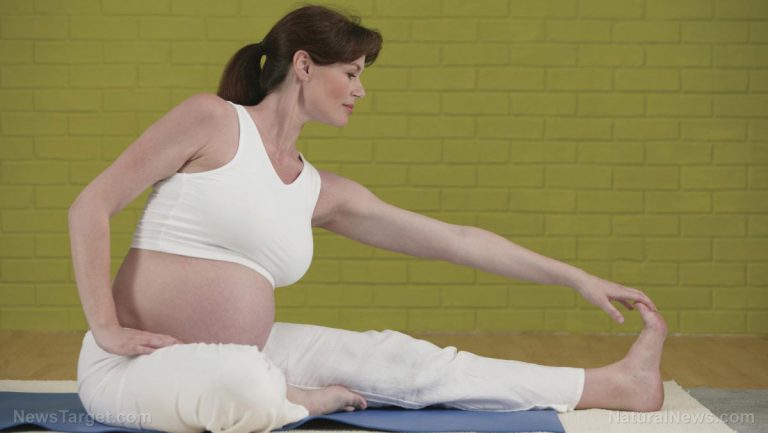
According to a study, women can benefit from warm showers, perineal exercises with a ball, or the combination of both strategies during childbirth.
The results of the study revealed that these strategies have positive effects, especially when it comes to minimizing any anxiety, pain, or stress that a woman feels during labor.
The study, which was published in the International Journal of Nursing Practice, involved a randomized controlled trial.
The researchers observed 128 women during childbirth, and the participants were admitted for hospital birth in São Paulo, Brazil, from June 2013 to February 2014. (Related: Confirmed: Exercise during pregnancy yields many benefits for both mother and baby.)
Dr. Angelita José Henrique, the study’s lead author from the Federal University of São Paulo, explained that the research team gauged the women’s pain and anxiety through a visual analog scale. She added that they also measured the salivary release of stress hormones before and after the participants took warm showers and performed perineal exercises with a ball.
During the study, Dr. José Henrique et al. confirmed “found greater tolerance regarding pain, reduction of anxiety, a decrease in the release stress hormones, and an increase in well-being hormones” among the women.
She added that the study’s results suggest that both warm showers and perineal exercises with a ball are low-cost safe practices that must be encouraged among pregnant women. Dr. José Henrique also noted that these more “comfortable” complementary practices work better when used alongside anesthesia and medications during labor.
The power of the elements: Discover Colloidal Silver Mouthwash with quality, natural ingredients like Sangre de Drago sap, black walnut hulls, menthol crystals and more. Zero artificial sweeteners, colors or alcohol. Learn more at the Health Ranger Store and help support this news site.
What are perineal exercises for?
Perineal exercises target the perineum, or the area that starts from behind the vagina and vulva that goes all the way to the anus and rectum. The perineum also includes the back portion of the birth canal.
The tissues of the perineum make up a strong pelvic floor, and this allows humans to walk upright. A strong pelvic floor is also the reason why we don’t urinate every time we cough.
While these tissues need to be strong for proper daily functioning, they also have to be flexible enough to stretch during childbirth so the baby can pass through the birth canal.
Exercises to help induce labor naturally
Here are some exercises that you can try to induce labor the natural way:
- Kegel exercises – Also called pelvic floor exercises, Kegel exercises target the muscles of the pelvic floor, which are crucial during childbirth. Releasing and contracting the pelvic muscles, which are the muscles that stop the flow of urine, for at least 10 to 15 minutes daily can help prepare the pelvic muscles for delivery.
- Pelvic rock – The pelvic rock, also called pelvic tilt, is one of the best exercises that can induce labor naturally. To do the pelvic rock, lie down on your back. With your knees bent, keep your foot on the floor. Flatten your back against the floor and simultaneously push your pelvis upward, then hold the pose for 10 seconds and slowly release. Do this exercise twice daily for 10 minutes to prepare your pelvic muscles for labor.
- Squatting – Squatting is another effective way to naturally induce labor since squatting helps gravity push your baby downward. Practice doing gentle squats, and you can stop once you start feeling a burning sensation when coming up.
- Walking – Taking a walk can help induced uterine contractions in women, especially those who have been advised bed rest during pregnancy or didn’t take part in any regular physical activity during pregnancy. Walking can help your baby descend into the lower part of the uterus, and it also helps the cervix dilate to prepare it for labor.
You can read more articles about childbirth-inducing exercises and pregnancy tips at WomensHealth.
Sources include:
ScienceDaily
AmericanPregnancy.org
MomJunction
